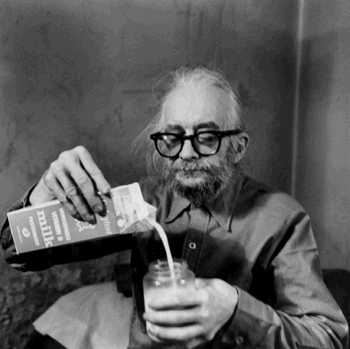“Do not go gentle into that good night” (1951) – Dylan Thomas
“Do not go gentle into that good night,
Old age should burn and rave at close of day;
Rage, rage against the dying of the light.
Though wise men at their end know dark is right,
Because their words had forked no lightning they
Do not go gentle into that good night.
Good men, the last wave by, crying how bright
Their frail deeds might have danced in agreen bay
Rage, rage against the dying of the light.
Wild men who caught and sang the sun in flight,
And learn, too late, they grieved it on its way,
Do not go gentle into that good night.
Grave men, near death, who see with blinding sight
Blind eyes could blaze like meteors and be gay,
Rage, rage against the dying of the light.
And you, my father, there on the sad height,
Curse, bless, me now with your fierce tears, I pray.
Do not go gentle into that good night.
Rage, rage against the dying of the light.”
Old age should burn and rave at close of day;
Rage, rage against the dying of the light.
Though wise men at their end know dark is right,
Because their words had forked no lightning they
Do not go gentle into that good night.
Good men, the last wave by, crying how bright
Their frail deeds might have danced in a
Rage, rage against the dying of the light.
Wild men who caught and sang the sun in flight,
And learn, too late, they grieved it on its way,
Do not go gentle into that good night.
Grave men, near death, who see with blinding sight
Blind eyes could blaze like meteors and be gay,
Rage, rage against the dying of the light.
And you, my father, there on the sad height,
Curse, bless, me now with your fierce tears, I pray.
Do not go gentle into that good night.
Rage, rage against the dying of the light.”
The word villanelle comes from the Latin word “villanella” meaning rustic. As perhaps the most well-known and celebrated of the villanelles, “Do not go gentle into that good night” indeed incorporates a rustic tone and sincerity. Written shortly after the death of his father, Dylan Thomas transformed his confusion, grief, and anger at the loss into a desperate plea. The repetition of lines, and rhymes (as is typical in a villanelle) help to create this tragic tone. Like the soft waves of tears the come in and out like the tide, Thomas indulges in the same feeling through his mournful composition. The honor, love, and respect that he held for his father is also evident in the numerous stanzas. Dylan Thomas also addresses the need for legacy in life. These “wise men,” “good men,” “wild men,” and “grave men” know well enough to fight to the end for life, when all seems meaningless and trivial. Thomas speaks to the brevity of life as well as even these most noble men, with lives full, cannot impact the world enough to leave a legacy. With this and the intolerable loss he had to face, Dylan Thomas begs each man to combat an empty life, but more importantly an arbitrary death, to not surrender to apathy and tradition, but to expire with passion, so that the light may never die.
The revival of formalism is imperative in current writing, deconstruction is often popular in contemporary composition, but this wondrous poem, identifies the advantages of formalism for certain topics and themes. The insistence of the stanzas does not subside, like those going “gentle into that good night,” but instead rages “against the dying of the light.” The villanelle impacts the audience firmly within this context, because of this very repetition, and formalism. The structure simply reaffirms Thomas’ theme, and without it would become ineffective. If Thomas was to, for instance, write a haiku, attempting to carry this theme, his structure would only display the exact opposite of what he was trying to get across. The number of words used in a haiku, or less verbose type of poem, would also betray the persistence of his message. Though it requires great skill, and time, a villanelle can be one of the strongest forms of poetry.

No comments:
Post a Comment